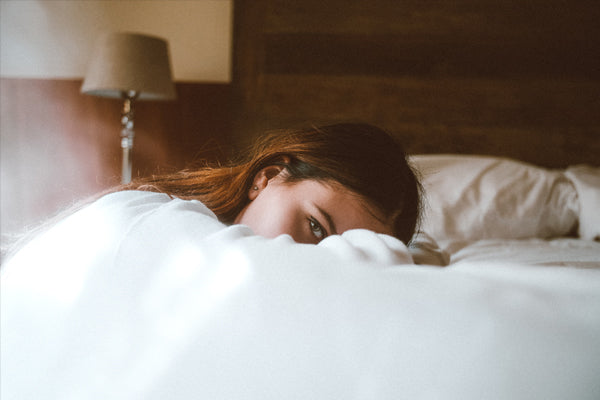
SSRIs and Your Sex Life
If you take SSRIs for anxiety or depression, then you know they can come with some (literally) undesirable side effects. Unfortunately, one of the most common ones is a decrease in sexual desire, and sometimes even sensation. The problem is not that your body isn’t able to get aroused—it still is!—but mentally, you’re not making that connection.
SSRIs, or selective serotonin reuptake inhibitors, are a common class of meds used to treat anxiety and depressive disorders. Prozac, Zoloft, Lexapro, Celexa—you’ve probably heard of these before. SSRIs help to increase the amount of serotonin in your brain, which regulates mood, but too much of this particular neurotransmitter can inhibit libido, and possibly make it harder to reach orgasm. Some doctors think that the more serotonin your brain makes, the less dopamine—that's another neurotransmitter, and it helps you get turned on.
Around forty percent of people report sexual side effects, and mostly describe them as bothersome, but manageable. Due mostly to differences in metabolism, some people may experience more difficult sexual side effects, while others remain unaffected. It’s common to experience a dip in libido when you first start taking an SSRI, and then feel 'normal' again after a few months.
Side effects can be different depending on your body and hormones, too. For those with penises, it’s not that common to have erectile dysfunction, but lots of people report a delay in orgasm. People with vulvas may find themselves drier than usual, which contributes to reduced sensation.
If you're finding yourself in this position, here are some steps you can take to turn yourself back on...

Give it some time.
Remember, depression and anxiety themselves can have an inhibiting effect on your libido, so if you’ve just started a medication, try and give your body the time it needs to get used to it. The medication might not be the only thing affecting your sex drive. If you’ve been on the same dose or prescription for a while, let your doctor know about the side effects you’re experiencing, and ask if you can try something else.
Take good care of yourself.
Eating and sleeping as regularly as possible is key, and even light exercise can help your brain naturally produce more dopamine. Warm baths and listening to music can help you get in a more relaxed, potentially sexual state—try masturbating lightly in the tub without thinking too much about having an orgasm. Just focus on the sensation, and take your time.
Watch some porn.
If you’re having a hard time getting in the mood, a little visual stimulation could be just what the doctor ordered. Even if you feel less than interested at first, try to focus, let your body respond naturally and see how that feels. You might find that your libido was right there, waiting for you to engage. Here are a few of our favorite sites.
Talk about it.
If you’re in a relationship or even a casual hook-up, let your partner know that you’re having a little trouble. Lots of people are on SSRIs and understand what it’s like, and even if not, can be patient and understanding with the right information. More foreplay is not necessarily a bad thing, and if there’s something in particular you like, ask.
If you feel comfortable talking about this with friends or a therapist, you might be surprised by how common an experience it is, and how much better it can feel to just get it off your chest.
Get a new toy or stimulating lube.
There’s nothing like a new toy to get you in the mood, and a different kind of sensation could be the wake-up call your mind and body needs. A new or bigger dildo, a more powerful vibrator or an anal toy are all great places to start—so treat yourself! You may also find you enjoy a lube that tingles and stimulates (like the Dame Arousal Serum) to get things started. At the end of the day, be easy on yourself, explore mental arousal, experiment and talk to your doctor.



